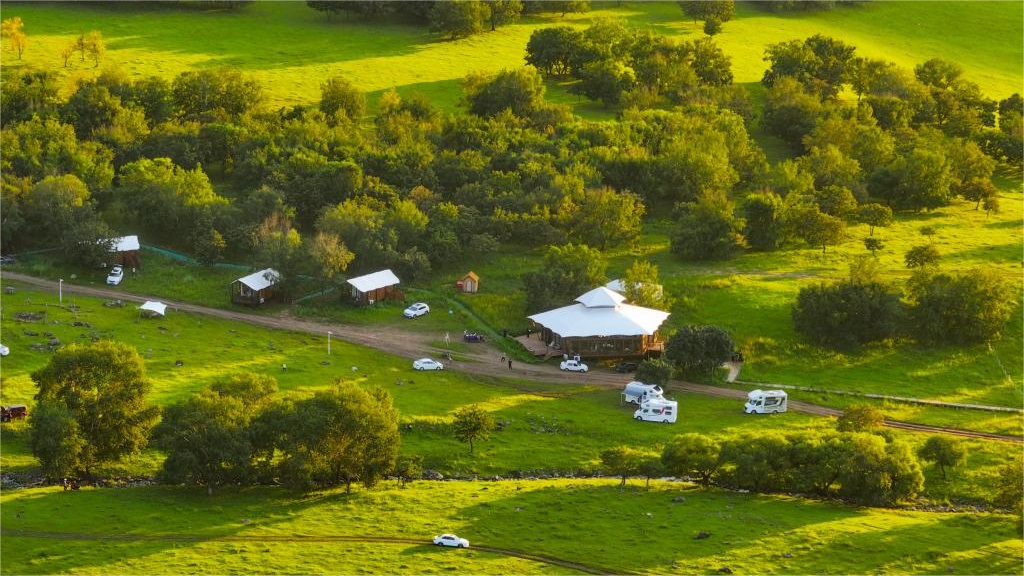Millions Americans under alerts as heat wave hits U.S. Midwest
LOS ANGELES, Aug. 29 (Xinhua) -- A heat wave brought record-high temperatures to U.S. Midwest states this week, with more than 60 million people included in alerts over the conditions.
A late-season high-pressure system over cities in the Midwest regions such as Chicago, Des Moines and Topeka has left them experiencing rare "extreme heat" for a long period of time, according to the U.S. National Weather Service (NWS).
Chicago is in the center of an excessive heat warning that stretches north to Madison, Wisconsin, and south to Springfield, Illinois.
The dangerous late August heat wave will expand over the Midwest early this week before building into the Mid-Atlantic and Southeast by mid-week, according to the NWS Weather Prediction Center.
"Heat indices of 105-115 and lows in the mid/upper 70s will bring a heightened risk of heat-related illness," NWS posted.
The NWS warned the public of the combined dangers of heat and humidity associated with heat waves.
U.S. midwest states have set up several public cooling centers in preparation for the dangerous heat. The extreme heat prompted early dismissals and canceled classes for several school districts across the U.S. Upper Midwest and Northeast.
A new research published this week in the Journal of the American Medical Association showed that heat-related deaths in the United States rose 117 percent between 1999 and 2023.
The study examined trends in heat-related mortality rates in the U.S. population from 1999 to 2023, and found a total of 21,518 deaths were recorded as heat-related underlying or contributing cause of death during those years in the country.
"As temperatures continue to rise because of climate change, the recent increasing trend is likely to continue," the researchers wrote. "Local authorities in high-risk areas should consider investing in the expansion of access to hydration centers and public cooling centers or other buildings with air conditioning."
Extreme heat together with humidity is one of the leading weather-related killers in the United States. Approximately 1,220 people in the country are killed by extreme heat every year, according to the U.S. Centers for Disease Control and Prevention.
The frequency and intensity of extreme heat and heat waves will continue to rise in the 21st century because of climate change, according to the World Health Organization (WHO).
Extended periods of high day and nighttime temperature conditions create cumulative stress on the human body, increasing the risk of illness and death from heat exposure. Heatwaves can acutely impact large populations for short periods of time, often trigger public health emergencies, and result in excess mortality and cascading socioeconomic impacts. They can also cause loss of health service delivery capacity, when power shortages accompany heatwaves and disrupt health facilities, transport and water infrastructure, according to WHO.
Photos
Related Stories
- Senior Chinese official meets Bridgewater founder
- U.S. GDP growth in Q2 revised up to annual rate of 3.0 pct
- U.S. wildlife officials finalize plan to kill nearly half million invasive barred owls amid controversy
- U.S. reports 21 Oropouche cases among travelers returning from Cuba
- U.S. reports more illnesses, deaths in Listeria outbreak
Copyright © 2024 People's Daily Online. All Rights Reserved.









